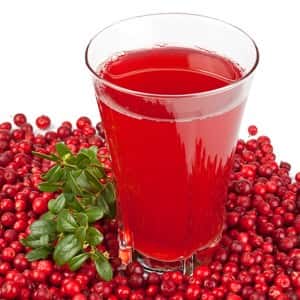
It is estimated that 60 percent of women experience one or more urinary tract infections during their lives. Such UTIs are among the most common bacterial infections, accounting for over 10 million doctor visits each year. In most cases, women take antibiotics for UTIs. But could drinking cranberry juice reduce the need for drugs?
Does Cranberry Juice Help UTIs?
Physicians are searching for ways to heal infections without antimicrobial medications so they can reduce the problem of antibiotic resistance. Cranberry juice has a long-standing reputation for both preventing and treating UTIs. However, many experts have questioned the effectiveness of this alternative approach for managing urinary infections.
Mixed Results from Previous Studies:
One early study found that elderly women who drank cranberry juice every day were only 40 percent as likely to have bacteria in their urine as those who drank a cranberry-flavored placebo (JAMA, March 9, 1994). A commentary emphasized that this remedy was an “old wives’ tale,” even if it helped (Nutrition Reviews, May, 1994).
In 2000, a Cochrane review concluded, “The small number of poor quality trials gives no reliable evidence of the effectiveness of cranberry juice and other cranberry products” (Cochrane Database of Systematic Reviews, 2000). Researchers reported that cranberries are rich in oxalates. Drinking the juice might therefore increase the risk of kidney stones (Urology, Jan., 2001). You may wonder: How Can the Same Evidence Lead to Conflicting Advice? (Advances in Nutrition, May 16, 2016).
The Recent Research:
A randomized, double-blind, placebo-controlled trial of 373 women who had a recent history of urinary tract infection found that consuming 240 ml (about eight ounces) of cranberry juice daily reduced UTI recurrence by 40 percent compared to placebo. The study was undertaken between February 2013 and March 2015.
Each of the women consumed the beverage she was assigned for 24 weeks and provided symptom diaries and urine specimens at 5 clinic visits throughout the study. (Clinics were at 17 medical centers in the US and one in France.) The volunteers refrained from consuming other cranberry and blueberry products or probiotics. The beverages, like those in the 1994 study mentioned above, were supplied by Ocean Spray. By the end of the study, 33 women (17.8 percent) in the cranberry juice group had experienced a UTI. In comparison, 50 women (26.6 percent) in the placebo group had had such an infection.
In our view, this research offers a good argument for women who have had one urinary tract infection to add cranberry juice to their regular daily repertoire and reduce the chance of having a repeat performance.

